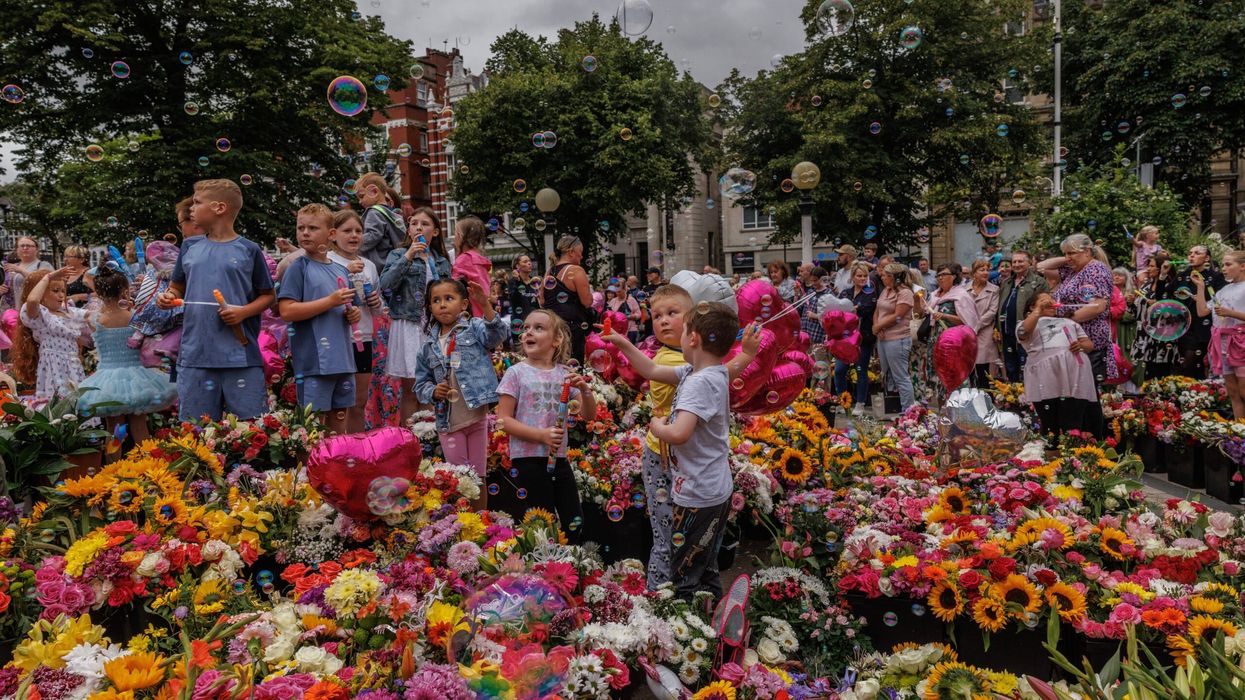AS THE weeks pass, the six days and nights of violence and disorder which spread across the country this summer may feel like they have slipped away like a bad dream.
A key test of the government this autumn is to offer not just a public narrative to make sense of these shocking events, but also how far it puts in place the foundations of a credible plan to address their causes.
The direct repair costs from physical damage were not extensive in most cases, further limited by spontaneous clean-up campaigns in towns the morning after.
The psychological impact of the horrific scenes of arson will surely endure for much longer. The targeting of asylum seekers, Muslims and ethnic minorities made these riots the most concerted outbreaks of racist violence in Britain for decades.
Prime minister Sir Keir Starmer recognised the racist motive for much of the violence, in an interview with the BBC’s Laura Kuenssberg last Sunday (8), in his first televised interview of the autumn.
He was clear, too, that government policy would not be influenced by riots and disorder, but would instead engage with legitimate concerns, when expressed in legitimate democratic ways, on issues from immigration to social and economic change.
The government’s initial focus was on restoring order, with swift and visible justice to underpin that message. Starmer must not leave the job halfdone after those prosecutions.
Addressing the causes of disorder is complex as it requires a cross-cutting agenda, capable of navigating politically contested debates about the extent to which the handling of immigration, inequality and racism interact.
The pace of online misinformation was crucial in spreading disorder. Ofcom can challenge social media platforms to prevent hateful content. Stronger education can help users to be warier of unreliable content too. But the foundational reason why misinformation is generated, shared and believed goes deeper than that.
Anger about the Southport killings targeted groups that had nothing to do with it – Muslims and asylum seekers – because of the patterns of threat perceptions, fears and prejudices in our society. There is an urgent challenge to defuse the dangers of hotels housing asylum seekers becoming a flashpoint for local grievances and extremist activity.
Rapid prosecutions have sent an important message.
Some of those involved in the rioting were teenagers. The Ministry of Justice should pilot tailored programmes with refugee-led organisations and mosques, adapting the principles of restorative justice programmes to promote contact that can help to humanise the groups who were targeted by the perpetrators.
Long-term change requires sustained action at different levels. The government’s broader agenda of change on the economy and public services will help, but needs to be combined with intentional action on community relations too.
But Britain’s focus on integration has too often been in response to flashpoints. Professor Ted Cantle, who led the review into the 2001 riots, notes with frustration that a quarter of a century later there is still no national strategy for cohesion.
There has been no shortage of integration reports and reviews. As those authored by Louise Casey and Sara Khan noted again in more recent years, the recurring pattern is of a flurry of flashpoint-driven activity – but without governments finding the stamina for sustained action when the headlines move on.
A new report, After the Riots, copublished this week by British Future, Belong and the Together Coalition, sets out a practical, affordable plan that would change that. It sets out how government can address the strategic vacuum on cohesion strategy in a way that connects a national vision on the key foundations with local ownership and action.
There is no reason why Southport found itself at the epicentre of these events. It could have happened in any town. A strategy focused narrowly on the specific locations of sporadic disorder in 2024 would not help to build stronger connections ahead of future shock events.
Sunder KatwalaLaying the foundations of cohesion and resilience has to be an agenda for everywhere. The government needs to articulate a ‘state of the nation’ vision and strategy that supports and empowers local action plans.
National funding of £60 million would enable annual funding of around £75,000 per council, to enable all local authorities to develop local plans and tension monitoring capacity. Places with greater challenges could receive more support to pilot initiatives that establish what works.
“The irony is that the cost of this work is really quite modest, where the cost of inaction is so much greater”, Cantle says.
Extending meaningful contact between people from different ethnic, faith and class backgrounds should involve schools, sports clubs, cultural institutions and others to ensure it reaches beyond those already engaged.
“Fixing the foundations” is the government’s theme this autumn. The summer showed just how fragile those foundations can be in many communities, after years of neglect for cohesion. The government should set out its long-term plan to strengthen them, so we can build a shared society where we all live together well.
(The author is the director of British Future)




